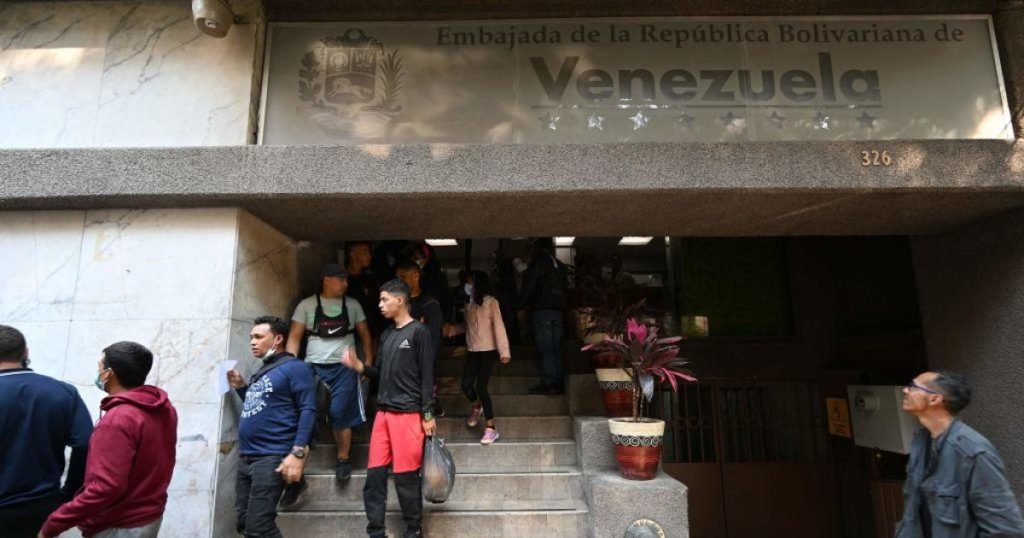The Biden administration is reopening a migrant sponsorship program that was paused earlier in the year due to concerns about fraud. The program, first set up in late 2022 and expanded in early 2023, allows up to 30,000 people from Cuba, Haiti, Nicaragua, and Venezuela to fly to the U.S. each month with the support of U.S.-based sponsors. This initiative was designed to divert migrants away from the U.S.-Mexico border and led to a significant drop in unlawful crossings from these four countries. However, the program was frozen in July due to concerns about fraudulent applications from sponsors.
After a weeks-long pause, the Department of Homeland Security is restarting the program with an enhanced screening process for sponsors. Sponsors must now submit fingerprints for vetting, and there will be closer scrutiny of their financial and criminal records. The goal is to ensure that only legitimate sponsors are able to support migrants under the program. While some cases of potential fraud were found during the initial probe, the majority had reasonable explanations, such as filing errors. However, some cases involved the use of fraudulent Social Security numbers, leading to referrals to law enforcement.
Sponsors must be U.S. citizens, permanent residents, or hold another legal immigration status. The CHNV policy, as it is known due to the initials of the four eligible nationalities, has been a key part of the Biden administration’s strategy to reduce migrant crossings at the U.S.-Mexico border. Over half a million migrants have arrived in the U.S. under the program. The administration has created multiple paths for migrants to enter the U.S. legally, including an app for distributing entry appointments for those waiting in Mexico and increased penalties for illegal border crossings.
The CHNV policy allows eligible migrants with American sponsors to apply for temporary work permits under immigration parole laws. The administration justifies the policy on humanitarian grounds, citing economic crises and political instability in the four countries. Additionally, they argue that the program serves a public interest by reducing illegal immigration through a legal alternative. Despite legal challenges from Republican-led states, a federal judge in Texas rejected the claims, stating they failed to demonstrate harm from the program.
In summary, the Biden administration is resuming a migrant sponsorship program with enhanced screening procedures following a pause due to concerns about fraud. The program was established to divert migrants from the U.S.-Mexico border and has been successful in reducing unlawful crossings from Cuba, Haiti, Nicaragua, and Venezuela. The administration views the policy as a humanitarian and public interest initiative, providing legal paths for migrants to enter the U.S. Despite legal challenges, the program has been allowed to continue under federal court rulings.


